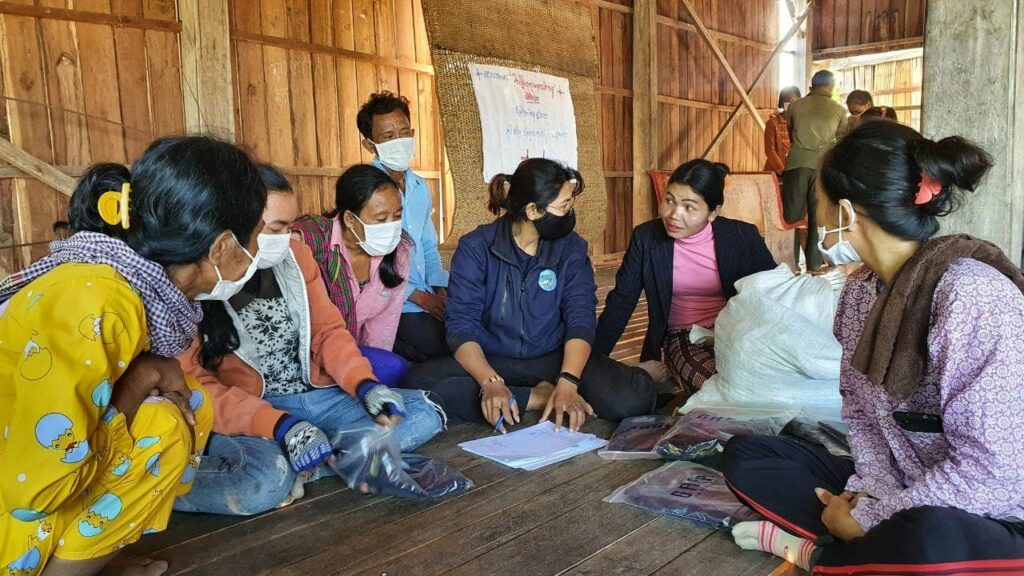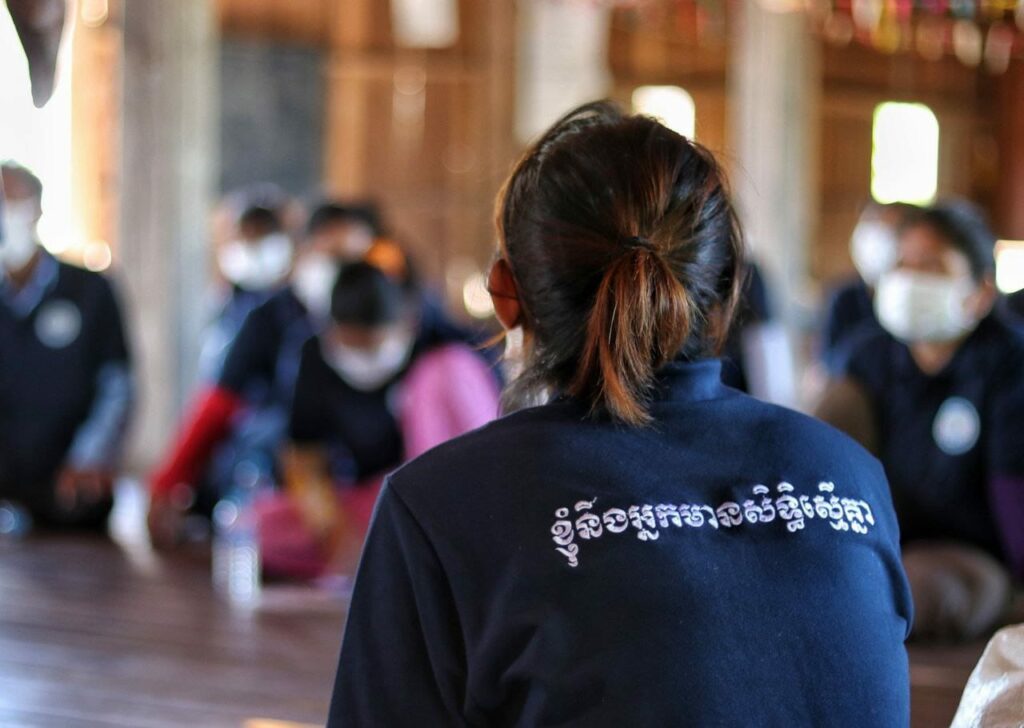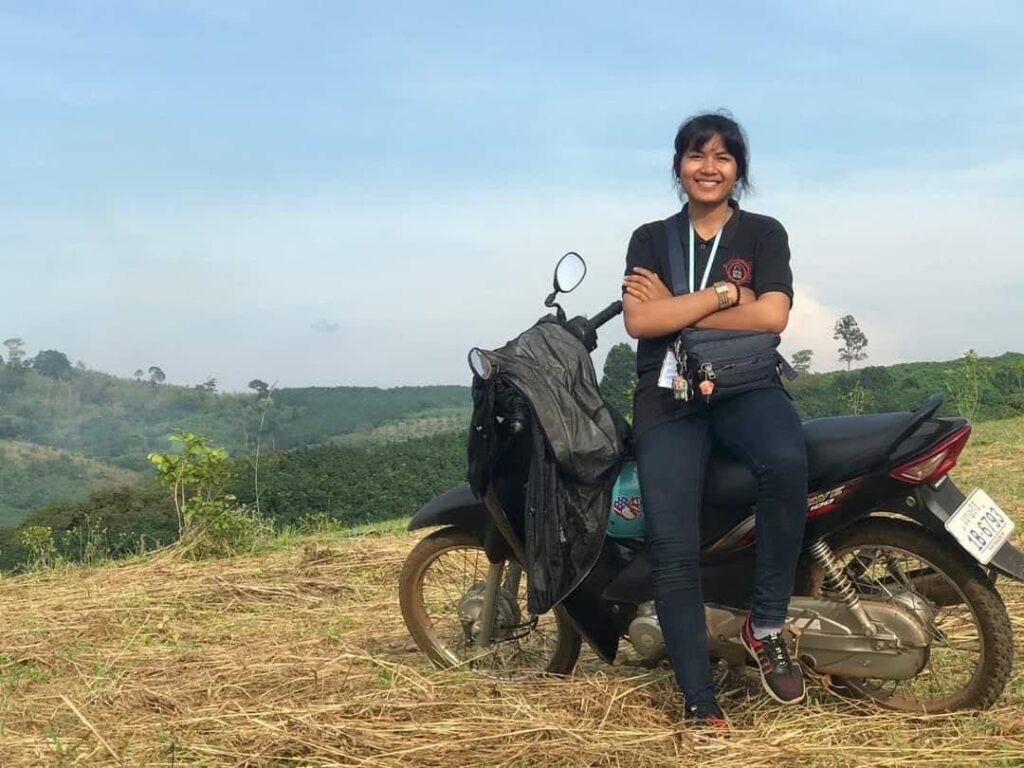Struggle is common to every journey, however finding the right cause is deeply personal. This is a story of 23-year-old environmental advocate, Eng Sreypov, who found her calling in the midst of Cambodia’s forests.

Youth is like a new branch, growing from a shared ancestor root that develops its own path, often in unforeseen directions. This is a story of a divergent branch, Eng Sreypov, who, against all odds, grew to love working in environment-related fields and developed a passion for forest advocacy and environmental protection. She has spent the past 5 years periodically traveling the 300km from Phnom Penh to Kratie province to conduct training, data collection and forest patrols, working closely with forest communities for environmental protection.
In partnership with KampumEra, Fous spoke with this young community organiser from the Cambodian Youth Network — a local non-governmental organization working to empower and build youth capacity — about her inspiring journey, finding her own path and fostering positive change through her work.
How did you discover your passion and what motivates you to do this work?
My love of working in environment-related fields grew from the roots of my education in tourism. At first, I didn’t know that I would step away from the focus of my major, but the more time I spent involving myself in the environmental projects, the more I witnessed the beauty of nature and realized we must stop the harm that we are doing to the environment.
I don’t want to miss the opportunity to do something that can restore the damage that has been done to nature. The biggest motivation for me is having a career that can help local communities to live sustainably and maintain the environment.
Why is this job important to you?
Personally, forests are important to people, animals and its surroundings, they also provide shelter, products, income and a place for recreation for communities. Especially for indigenous people, forests are a source of life as well as the place of preservation.
In addition, through this work, issues that the community encounters as a whole, such as encroachment on community forest land, illegal ownership of forest land, trapping of animals, logging, land issues with the community itself and company land are discussed. To address these issues, we have established forest patrols and provided training on legal rights related to logging investigations, surveying , compiling reports and videotaping.

How has this work changed your life, the people around you and the community?
I was an ordinary person who just followed the crowd and the flow of life without a clear vision of my future. This job not only helped to broaden my knowledge in terms of human rights, forest law and gain other skills that shaped me to be a well-rounded youth but also helped to grow as a person looking for something real that I can do. Getting an opportunity to deliver this message and stand with communities to raise their voices has also had a great impact on my life. A smile of hope from the community is a sign of change.
What are the difficulties of doing this job? How do you overcome challenges?
Trouble is a friend of every kind of job, it just comes in different forms. One of my prime issues is the family factor. It was a hard beginning when my family’s expectation of me was to have a white-collar job. Let alone the harsh reality that what I’m doing right now might make them worry for my well-being. It was mentally exhausting for both sides, but the value of fighting for my beliefs was worth it when my family started to understand the value of what I’m doing.
Another barrier that I was first struggling with were gender stereotypes. Working in a local community and travelling hundreds of miles away from home where sometimes there is only me as a girl among men in the forest was difficult. I was bombarded with questions from people around me about my ability to complete the job, so it took time for me to deal with it; especially to gain confidence and to work independently and comfortably .
One of the most effective methods for me to overcome all the challenges that I’ve been through is to build trust and support from everyone around me. I admitted it would cost blood and tears to do that, but everything has its price, and if it makes you happy, just do it.

How do you envision your work? What kind of change do you want to see in the future?
I wish to see a culture where youth have the courage to participate in social discussions and not only to be focused on individualism. Also the role of women in civic engagement should be normalised to make it easier to hear these voices that often go unheard.
From your perspective, what is the little thing that youth can do to make a small change in environmental issues?
I may not be an expert or someone who has the power to change the mindsets of the people, but personally I think youth is an important force, full of strength and knowledge. Showing interest in particular issues that affect us and our communities along with the willingness to raise our voices is a small thing that we can all do.
Having empathy for what is happening in our society is a simple thing that we all can start.
It can start by opening up to new knowledge. It only takes a few minutes of thought to digest new information and using social media to comment on these issues can be a great tool for change. Our small voices can make a big difference when we are together. Change only happens when you invest yourself into the process.





